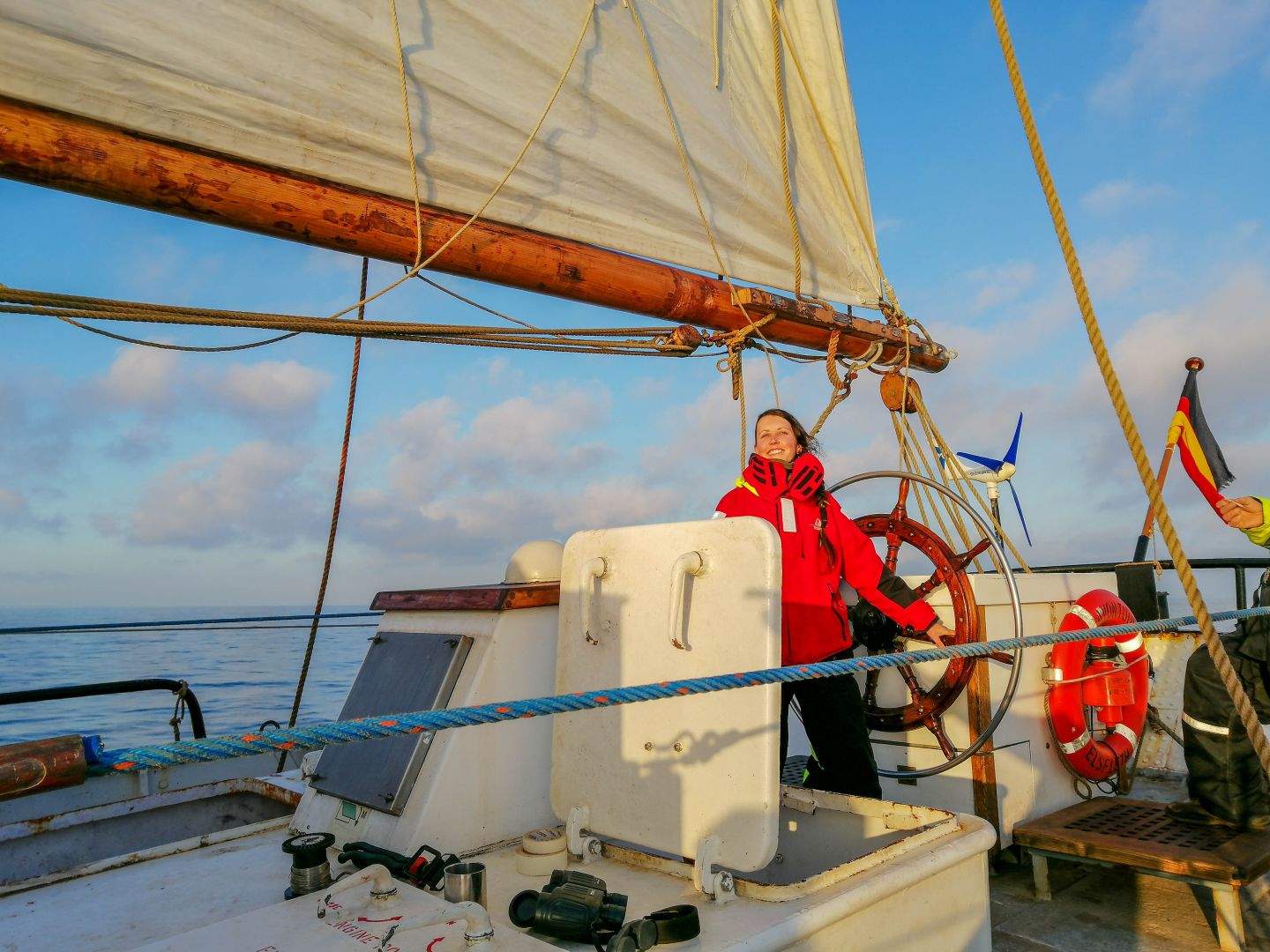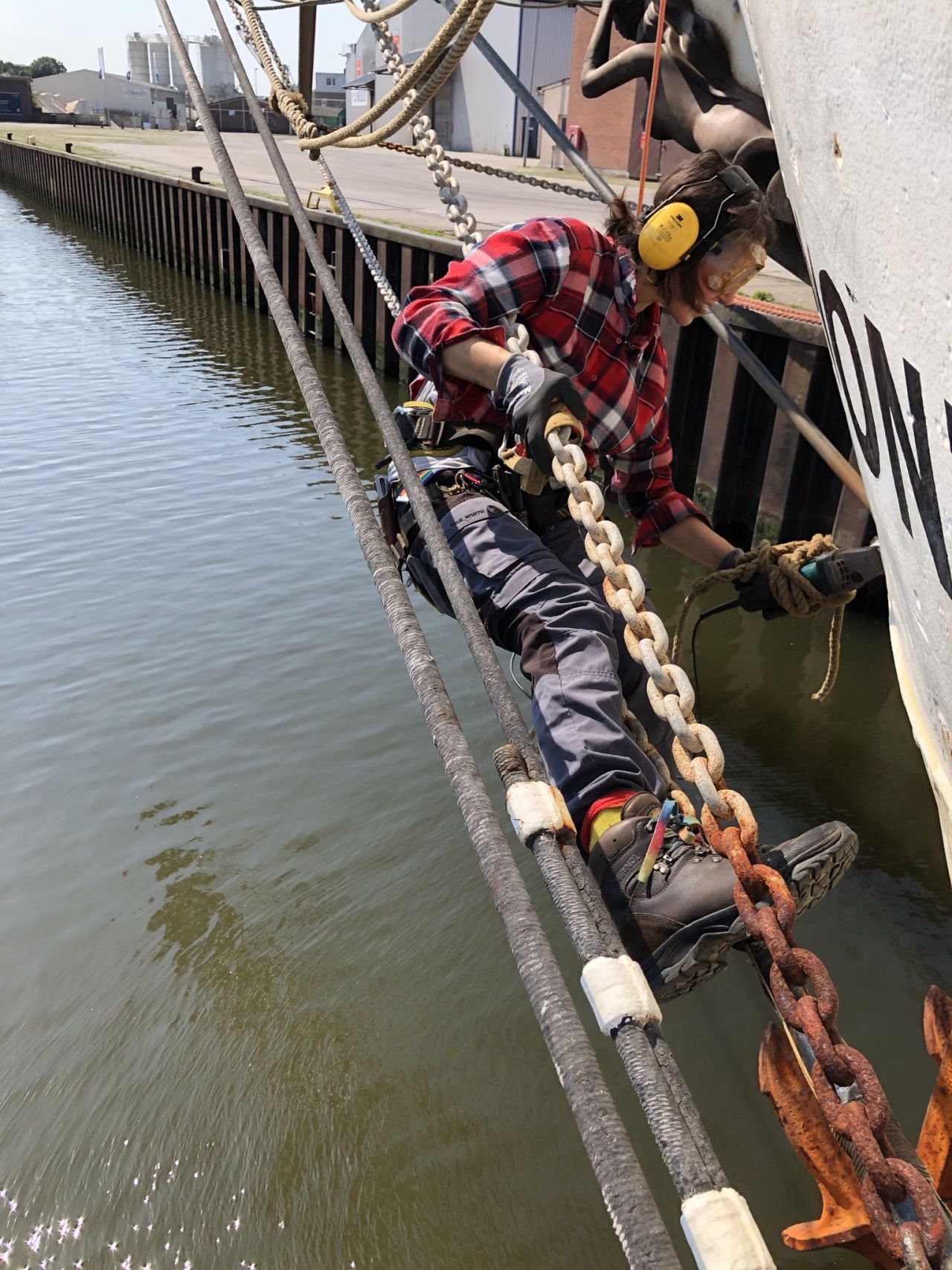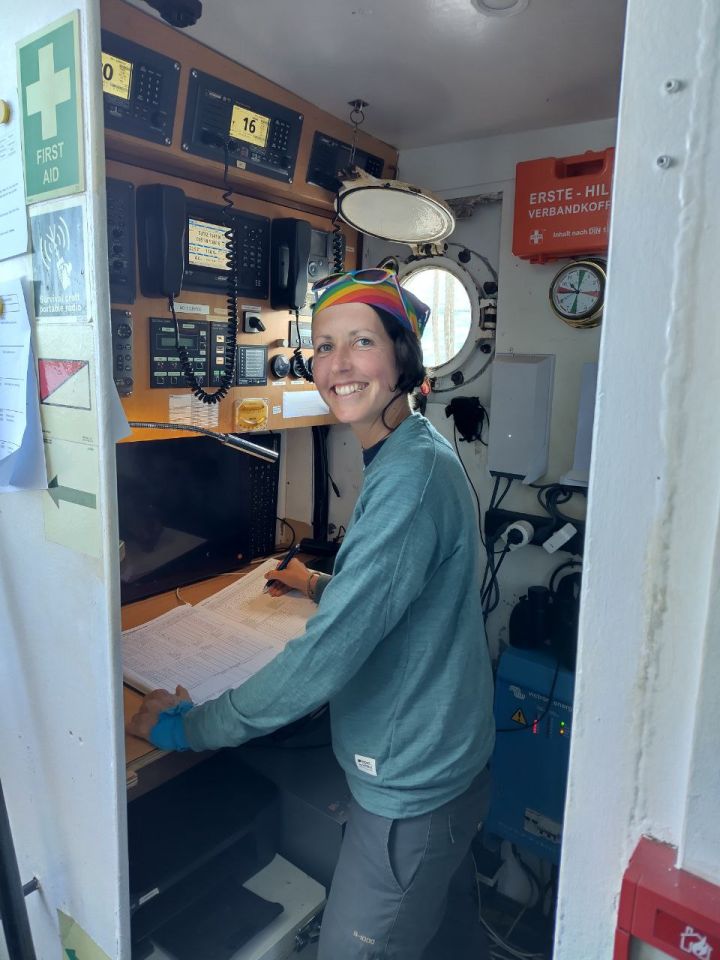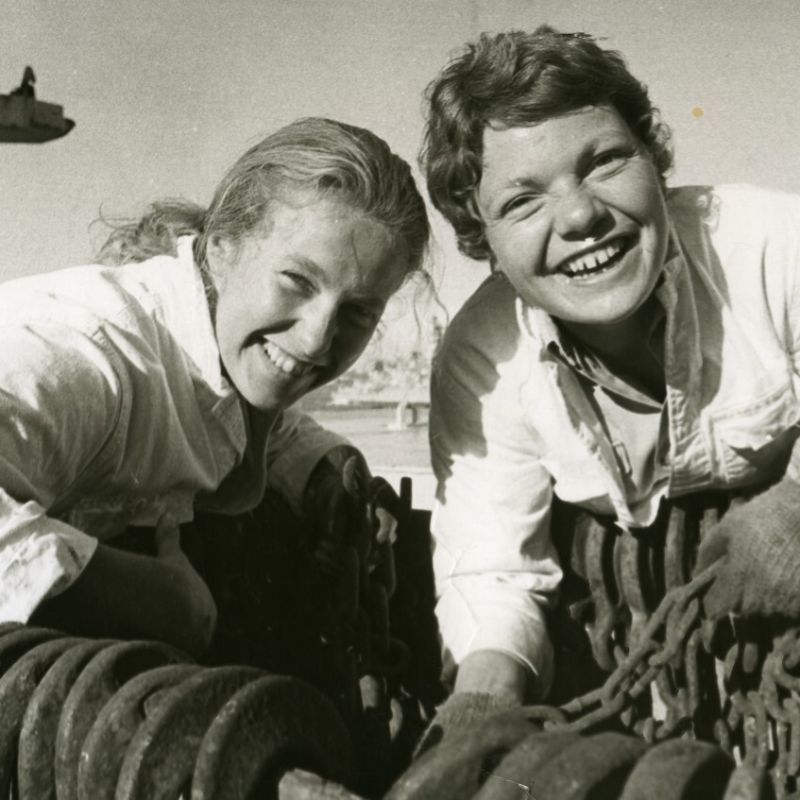
Peggy Engelmann, Sailing Officer for traditional Tall Ships (ENG)
Here, women from the maritime sector share their stories. This is the story of Peggy Engelmann.
What do you do for work?
I’m a sailor, educator, climate activist, and co-founder of Fair Winds Collective, a group that’s working to bring back sustainable, low-emission shipping using wind power.
A few years ago, I learned that the vessel Avontuur transported coffee, cocoa, rum and other products across oceans without burning fossil fuels. That idea fascinated me. I had always been passionate about environmental issues, about education and sustainability, and I wanted to do something more hands-on, more real. So I left my job and joined the Avontuur. I had to learn a lot on the job, but I knew I was in the right place.
After I finished my studies to become a sailing officer at the Enkhuizer Zeevaartschool in 2024, I started to sail on traditional cargo ships that are powered by the wind. As an officer I'm responsible to sail the ship mostly in the watches from 0-4 and 12-4 with my crew. My office is the chart room with all the navigational equipment. I set the course, decide when to hoist or drop the sails and what course we steer. Together with the captain we advise what maintenance should be done. I observe it and help if needed. I'm the right hand of the captain, I got the orders from her/him which are important for my watch. I also make sure that we have an updated medical locker on board. One important weekly task is to control the fire fighting and safety equipment on board. Whatever is needed - like supporting to organize the cargo operations, voyage planning, daily routine on board, updating the muster rol or supporting in organizing the safety drills. I also document and share the journey through writing, podcasts, and education.
Does being a woman play a role in your work?
When I decided to cross the Atlantic on a traditional sailing cargo vessel, it was also about movement in a deeper sense — a change in how we relate to one another as humans, as crew, as women and men sharing a deck. On board, you feel this shift happening. Sure, you still encounter mansplaining, old jokes, and outdated assumptions. It’s part of reality. But the more powerful truth is that we are learning to work together. It’s not just a shift in wind direction — it’s a shift in awareness. We’re learning that true seamanship isn’t about muscle, but about mutual respect, about recognizing that female perspectives bring strength: clarity, care, knowledge-sharing, peace-building. A good sailor knows that professionalism starts with treating everyone with dignity.

What do you love most about your work?
Whether I’m standing on deck under full sail or sharing stories back on land — it is this feeling that I’m part of something meaningful, something real and the infity of the horizon. Beyond the climate impact, what really fills my heart is the human side of it. I love how life on a traditional sailing ship strips everything down to what really counts: teamwork, trust, rhythm with nature, and learning from each other across backgrounds, cultures, and genders.
This work changed me. Life at sea is challenging — it's physical, unpredictable, sometimes uncomfortable. But it’s also beautiful. Out on the ocean, you're part of something bigger. You learn what really matters. You learn to work together, rely on others, and respect the forces of nature. Since the first crossing, I've become calmer. I don't go to bed stressed about unfinished to-do lists. I love how this work allows me to show up fully — as a woman, as an officer, as a learner, as a teacher, as someone who believes that fairness, sustainability, and inclusion aren’t just ideals, but skills we practice every day.
A Moment you'll never forget
There’s one experience I’ll never forget, something that changed me deeply. It was during the voyage on board Avontuur in February 2020, somewhere out on the vast Atlantic. We spotted a small boat, clearly in distress. On board were 16 exhausted people — refugees — who had been drifting at sea for over ten days, without enough food, water, or shelter from the sun. We took them aboard. We gave them water, food, medical care, and most of all: a moment of safety and dignity. They were weak, dehydrated, sunburnt. Some could hardly speak. But I’ll never forget the moment one of them looked at me and light of life was turning back into their eyes, replacing hopelessness and death. In that moment, humanity came before anything else. We were just people helping people, and that’s what being crew really means. Sailing isn't just about wind and water. It is about courage, compassion, and connection.
A good sailor knows that professionalism starts with treating everyone with dignity.

